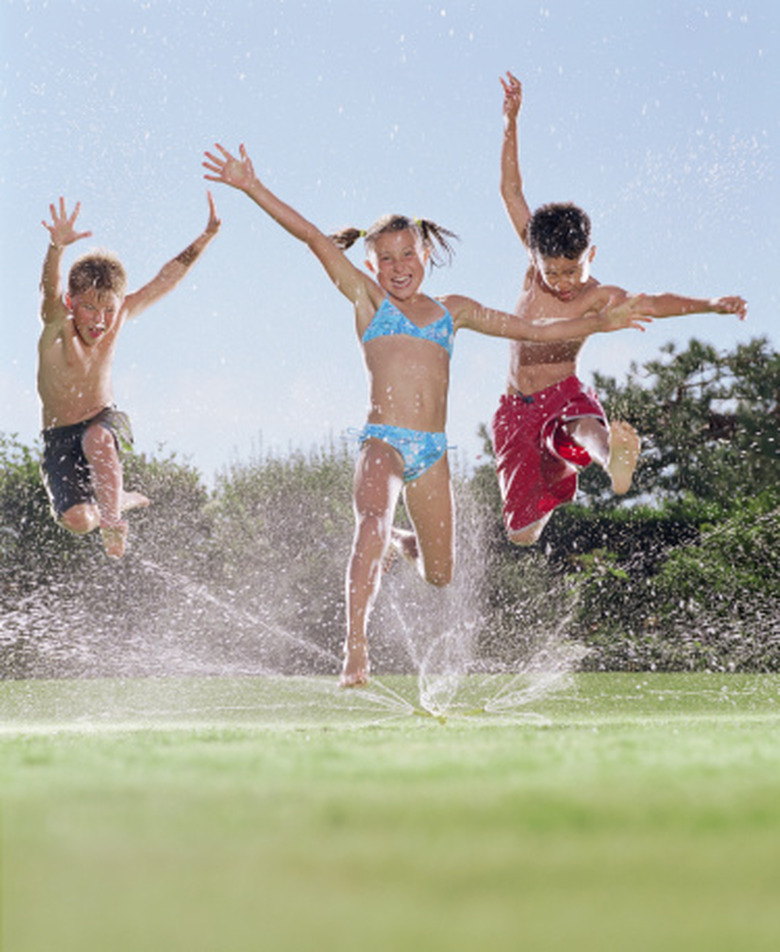What Is The Best Time To Turn On Lawn Sprinklers?
Knowing when to turn on lawn sprinklers is important for maintaining a healthy lawn. Turning on the sprinkler system for the season, watering for the correct period and choosing the correct time of day all play roles in intelligent yard irrigation. To avoid water waste and ensure lawns and plants receive the water they need, base your watering schedule on specific information.
System Setup
System Setup
Sprinkler systems are activated in different parts of the country depending on the area's last frost date and projected spring and summer weather. County extension agents in Colorado remind homeowners that the last frost date is around May 15, and sprinkler systems must not be activated until all danger of freezing pipes is past. In Florida, however, sprinkler systems may be needed in early spring, and concerns center more around potential plant damage and water waste than around damaging sprinkler systems.
Scheduled Watering
Scheduled Watering
Good watering depends on consistency. Lawn-turf watering illustrates the components of consistency. Growing good grass requires delivering water on a regular basis, in the correct amount and at the correct intervals. Over-watering may produce weak roots, disease vulnerability and a waste of water. Irregular watering may drown grass plants or encourage weed growth. Regular periods of moist and dry soil create the healthiest lawn growth, whether in a front yard or on a golf course.
Timing
Timing
Agricultural experts tend to agree that watering is best done very early in the morning, starting at or before dawn and concluding around 8 a.m. before air heats for the day. Cool morning hours let water absorb while providing time for the excess to evaporate. The next best period for watering is between 8 p.m. and midnight, when the wind is likely to be low and air temperatures are cooling. Excessive evening water can, however, lead to an increase in diseases if unabsorbed water sits all night.
Effective Sprinkler Use
Effective Sprinkler Use
Adding timers to sprinklers assures regular water delivery when needed. Timers turn sprinklers on and off, preventing water waste and over-soaking. Be prepared to change your watering schedule every two to three weeks during the growing season to respond to changing weather. Consult your county extension agent for further advice on irrigation concerns, regulations or issues in your immediate area.
